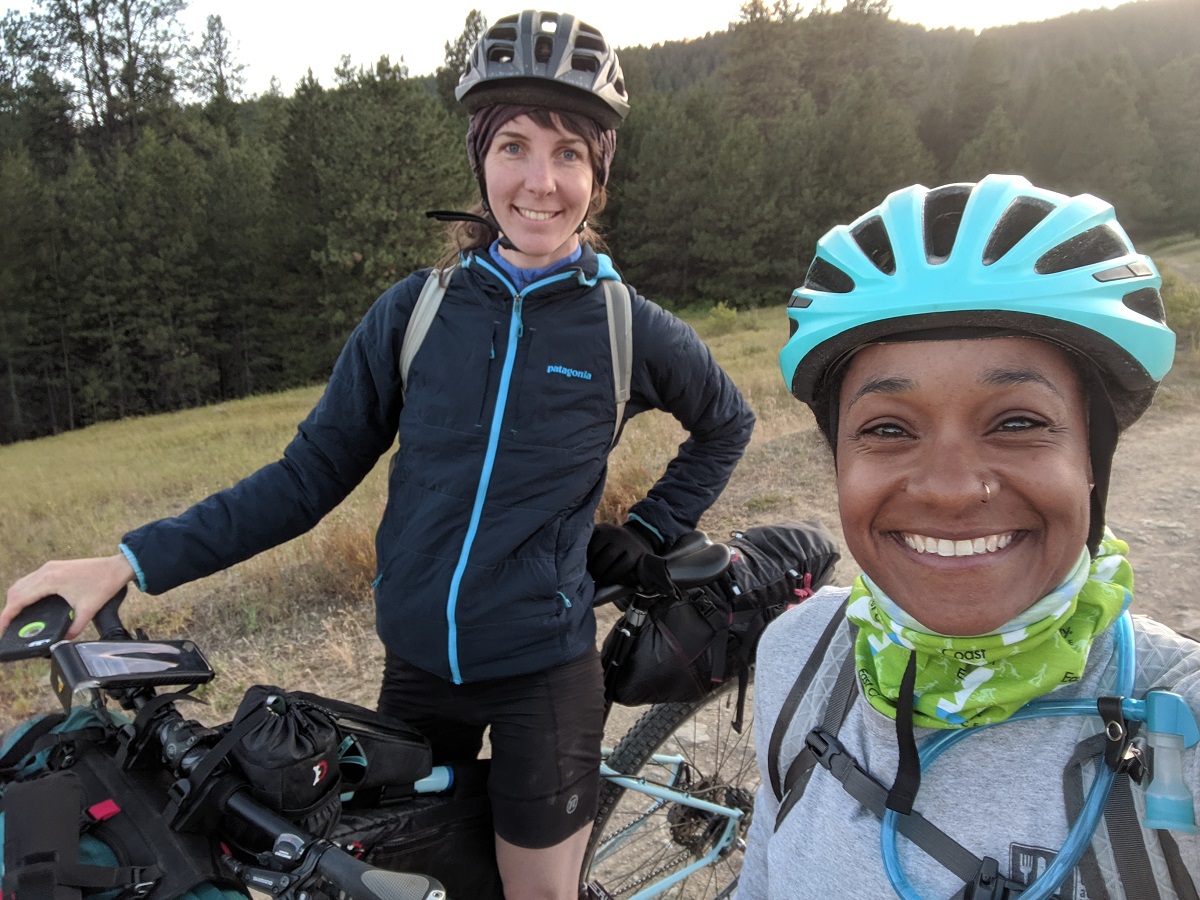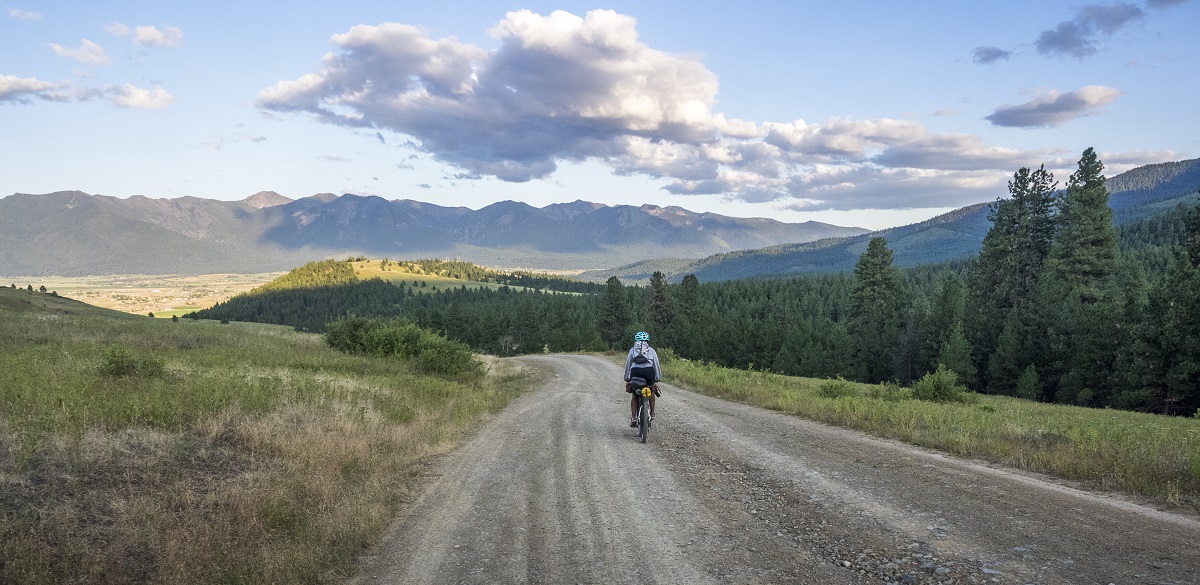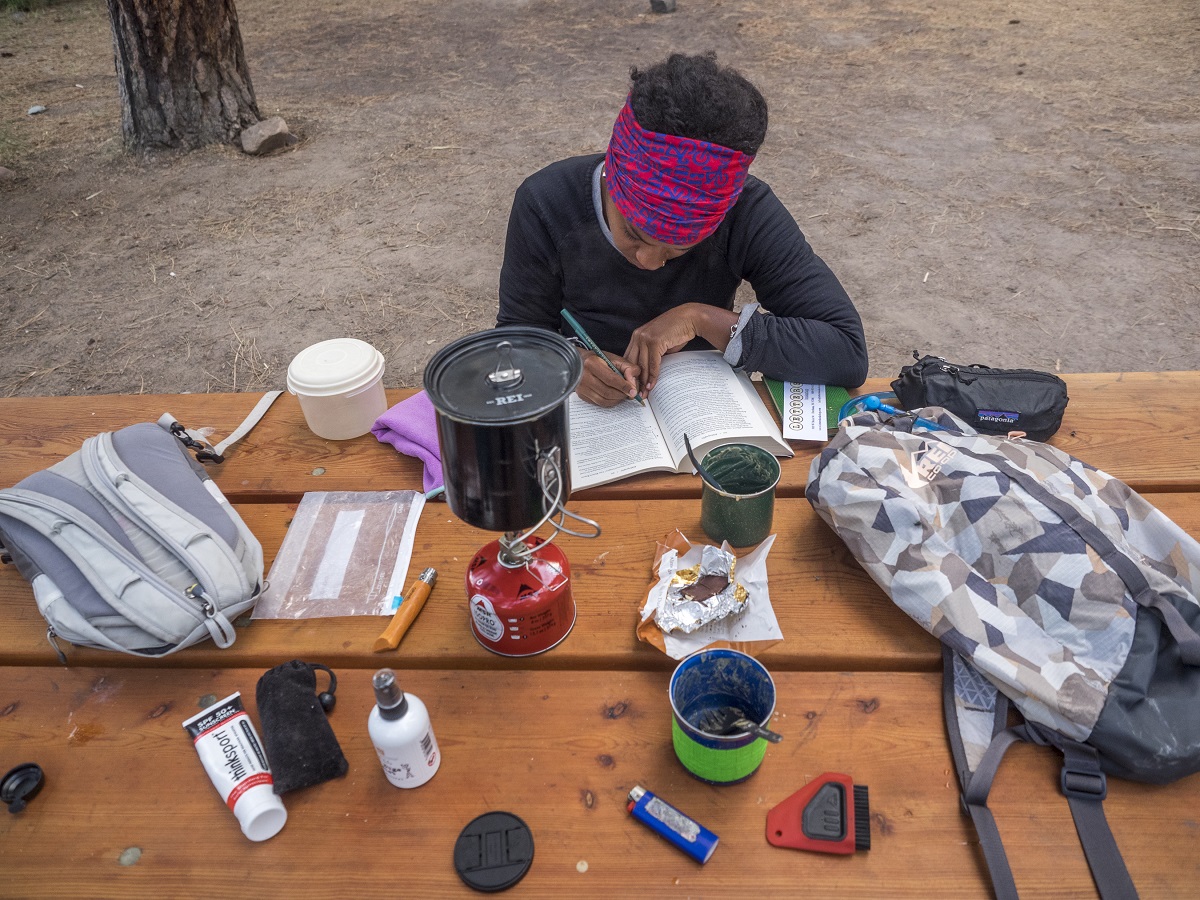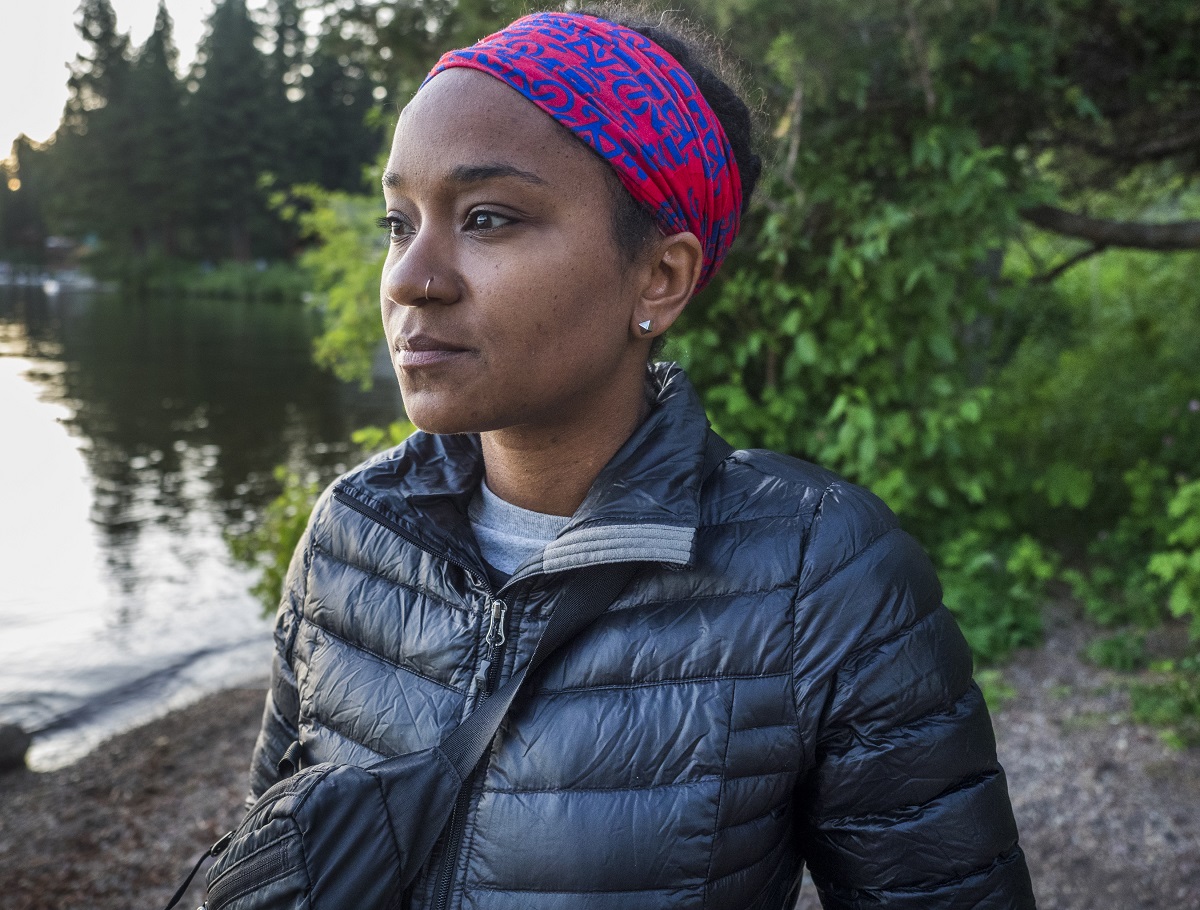The Cycle of Fear
It was my first time traveling to a new place to bikepack. I’d only known Saara for five months, but we’d bonded quickly and I trusted her. Having lived in Montana for several years, she was serving as my guide on this trip in many ways.
What I didn’t realize, however, was how a history of fear and exclusion would leave me unprepared for what was to come, regardless of having a personal tour guide.
The first day we planned to ride 38 miles with 2,000 feet of climbing. I thought, no problem, I’ve done this a ton in Atlanta. We started the day later than planned but rolled out of Missoula in the afternoon, post-lunch. The first several miles were a breeze, meaning that we snacked, stopped whenever we wanted, took photos, and enjoyed the sun’s warmth. I took in the scenery all at once, and my fully loaded, borrowed bike didn’t feel nearly as heavy as it looked.

We stopped at a gas station around mile 17 to get more water and rest for a bit. The mountains were breathtaking. It was my first time in Montana, and I wanted to take stock of every sight, sound, smell, and feeling I experienced.
I was feeling all of the joy that brought me to bikes in the first place: the freeing feeling of existence, being present, gratitude for my body and this earth, using my legs to power this vessel, and having it carry me to new places. Learning about myself on the bike and learning what I’m capable of are of such value to me.
We continued on from Frenchtown and headed into the mountains proper. I later learned that this part of Montana, at its valley floor, is 3,200 feet above sea level, and where I live is at 1,050 feet.
We began climbing a loose gravel road, encountering switchback after switchback, while making our way to the mountain pass. I was breathing heavily, trying to keep up with Saara, and now slightly annoyed that I packed so much on the bike (even with Saara carrying most, if not all, of the food). We walked our bikes in a few places, and it felt like the uphill was never-ending.
On this one particular hill, I was digging deep and lost in my thoughts when Saara mentioned how to use bear spray. Trying to focus on a lesson in bear spray technique while slowly climbing with a fully loaded bike while controlling your breathing and ignoring the pain in your muscles? File that under the top five hardest things I’ve ever done. I managed to hear that bear spray works like mace, and then I asked, “What happens if you run out? And does the bear actually run away after or … what’s the next step?” Turns out, Saara’s never had to use it (luckily?), and we kind of giggled (though mine was more of a laugh/cry) and both hoped for the best.

Meanwhile, Saara began calling for bears, which I learned is a process of letting the bears know that you’re in their territory by shouting a lot so that you don’t surprise them. It was an intense eight minutes.
Then, as if we called one into existence, Saara said, “Oops, there’s a grizz. Over on the next ridge,” and I was like, “Oh shit, really? Is he close?”
She calmly described the grizz’s location. I continued to pedal but took a peek — he was moving along the pass but could have easily been mistaken as a tree trunk if he hadn’t been moving. I was scared. I tried to push the fear down and pay attention to every detail of what I was doing: right foot pedal, left foot pedal, oh shit big rock, avoid!, sweaty back, how much longer, deep breath.
Things shifted at that moment. I became acutely aware of my body and laser-focused on only looking down and straight ahead. I felt my breathing get heavy. I tried to slow it down. The gravel and rocks beneath me were thick and chunky. Each pedal stroke got harder and the hill wouldn’t stop. I was sweating from heat and exhaustion, but my body felt cold. I was afraid. My thoughts raced around this idea of fear.
What would I do if this animal approached us? Why did I make this decision to travel this far and to go into the woods with a new friend, an almost stranger? How come I’m not stronger, and why is climbing this hill so hard for me? Why didn’t I train more before this moment? Could we out-bike this bear if it came after us? I thought Saara could, but I wouldn’t be able to. Can you even out-bike a bear? How do I play dead if a bear approaches?
As I contemplated all these questions, I stopped talking to Saara completely. This fear felt paralyzing, but I knew we had to keep going — we were chasing daylight and had a campsite reserved for the night. I had an inkling I’d be slowing us down if I needed to stop again and wanted to be finished cycling for the day.

I’m not sure how long the fear lasted, but it felt like an eternity. I made sure not to look back as I wanted to pretend the grizz didn’t exist. Saara later commented that she noted how composed I seemed given what was going on but also recognized how quiet I got. Disclaimer: When I’m not chatty, something must be wrong.
Later, in my tent that night, I was grateful for evening and prayed for no more grizzlies. As I reflected, I asked myself what I was afraid of and why; what was underneath it?
As a black woman, fear of and in the outdoors is something I’ve meditated on for a few years. I didn’t grow up camping or being in the woods, and being outside consisted of playing team sports in school or running around the neighborhood. As I got more into cycling as an adult and began camping with friends, I started to reflect on my experiences in the outdoors, while simultaneously developing my identity in society. The outdoors has felt safe for me only when I am with other people, mainly white people. There is safety in knowing that, most often, white folks aren’t looked at twice when hiking or cycling in a group, or even when going solo. They are simply recreating.
As I think about the history of this country, though perhaps not the history children are taught in school, I’m reminded of my ancestors and the ways in which land was taken from black and brown folks. I think about how the narrative was rewritten when colonizers dehumanized non-white people and staked their claim on the outdoors in the form of National Parks and public lands. Still, now, when I am in the outdoors, my existence is questioned; so many people turn their heads when they see me, this black woman, camping, cycling, hiking, or bikepacking. Why am I not allowed to recreate just like you?

All of these compounding factors of fear brought on by generations of trauma on Black bodies in unwelcome spaces have separated me from nature. And it made me mad to realize that I couldn’t appreciate it in the same way Saara could. She had always been allowed here and was therefore comfortable with it, even the bears. Maybe if I am given the same space to feel at ease, I too can experience nature and its bears with curiosity rather than debilitating trepidation.
My anger and my fear brought me back to a question I’m always asking: What role do I play in shifting the narrative and how others see black folks outdoors?
I don’t have any answers. But I will continue to meditate on fear, my interaction with the outdoors, what it means to be a black woman outside, and what it’s going to take to change things; this is evidenced in history continually repeating itself. My ancestors gave me strength and resilience, and connection to my community will keep me fighting.

